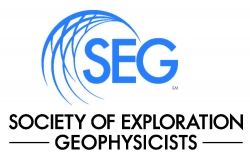The Fifth International Conference on Engineering Geophysics (ICEG) has announced the Special Plenary Panel, �The Role of Engineering Geophysics in Climate Change Adaptation,� taking place 22 October 2019 in Al Ain, United Arab Emirates. This panel is especially relevant, as the recent IPCC�s Special Report on the Ocean and Cryosphere in a Changing Climate published 25 September 2019 predicts catastrophic consequences of climate change by 2040.

Dubai, United Arab Emirates, October 05, 2019 –(PR.com)– The Fifth International Conference on Engineering Geophysics (ICEG) has announced the Special Plenary Panel, �The Role of Engineering Geophysics in Climate Change Adaptation,� taking place 22 October 2019 in Al Ain, United Arab Emirates. This panel is especially relevant, as the recent IPCC�s Special Report on the Ocean and Cryosphere in a Changing Climate published 25 September 2019 predicts catastrophic consequences of climate change by 2040.
To minimize the impact on humankind we must adapt. Coastal regions must be prepared to manage rising sea levels to include eroding coast lines and reengineering coastal infrastructure. Groundwater resources will be redistributed with some areas seeing more rapid depletion while other areas may find rising groundwater levels. Greater volatility in the atmosphere will result in more energetic storms potentially leading to more impactful storm hazards such as flash flooding.
ICEG 2019 will host an in-depth panel discussion of how geophysics can play a role in engineered solutions for climate change adaptation. This panel will bring together an international group of thought leaders to discuss fundamental research and application needs required to meet the societal challenges brought by our changing climate.
Panelists: Abdullatif Al-Shuhail, King Fahd University of Petroleum & Minerals; Ana Barros, Duke University; Kenji Tanaka, Kyoto University; Tetsuya Sumi, Kyoto University
Moderator: John Bradford, Colorado School of Mines
Abdullatif Al-Shuhail is a Professor of Geophysics and Chairman of the Geosciences Department at King Fahd University of Petroleum & Minerals (KFUPM). He founded and directed the Near Surface Seismic Investigation Consortium at KFUPM in 2006-2008. He has authored and co-authored 60+ journal and conference papers in the field of petroleum seismic exploration. He is a co-author of several books and co-inventor of several USPTO patents. His research interests include near-surface effects on petroleum seismic data, seismic investigation of fractured reservoirs, and ground penetrating radar.
Ana P. Barros is the Edmund T. Pratt, Jr. School Professor of Civil and Environmental Engineering at Duke University. Her research is in Environmental Physics and interdisciplinary Hydrosciences including Remote Sensing, Hydrology and Hydroclimatic Sciences. Dr. Barros is a founding member and past-Chair of the American Society of Civil Engineers (ASCE) Committee on Adaptation to a Changing Climate. She is a Fellow of the American Meteorological Society, American Geophysical Union, American Association for the Advancement of Science, and the ASCE. Dr. Barros is a member of the US National Academy of Engineering (NAE).
Kenji Tanaka is currently Associate Professor in the Disaster Prevention Research Institute at Kyoto University. His specialties are observation and numerical modeling of land surface processes and water resources engineering. He participates in several projects on the development of the next generation of land surface model, impact assessment of climate change on water resources, and real time monitoring of land surface states.
Tetsuya Sumi is an Associate Professor at the Department of Civil Engineering Kyoto University. His specialties are hydraulic engineering, dam engineering and civil engineering, with particular emphasis on sediment management of rivers and reservoirs, river restoration, dam operation, numerical modeling and field monitoring of sediment flushing, bypassing and replenishment. He is active in several projects on the integrated sediment management for reservoir sustainability and improvement of river basin environment. Recently he chaired the national committee on dam upgrading initiative. He is also leading international symposium of Flash Flood in Wadi Systems under the regional project of GADRI.
John Bradford is currently Vice Provost for Global Initiatives and Dean of Earth Resource and Environmental Programs at the Colorado School of Mines. His research is focused on developing methodologies for quantitative analysis of near-surface seismic and ground-penetrating radar data with emphasis on using these tools to solve interdisciplinary science and engineering problems. He has published on a diverse array of topics that include hydrocarbon detection as both resource and contaminant, geothermal characterization, hydrogeophysics, glaciology, and archaeology. In 2015/2016 he served as the President of the Society of Exploration Geophysicists.
ICEG takes place 21-24 October 2019. For more information visit seg.org/events/iceg19.
About SEG
The Society of Exploration Geophysicists is a not-for-profit organization committed to connecting the world of applied geophysics. With more than 14,000 members in 114 countries, SEG provides educational and technical resources to the global geosciences community through publications, books, events, forums, professional development courses, young professional programs, and more. Founded in 1930, SEG fosters the expert and ethical practice of geophysics in the exploration and development of natural resources, characterization of near surface, and mitigation of earth hazards. For more information visit www.seg.org.
Let’s block ads! (Why?)






